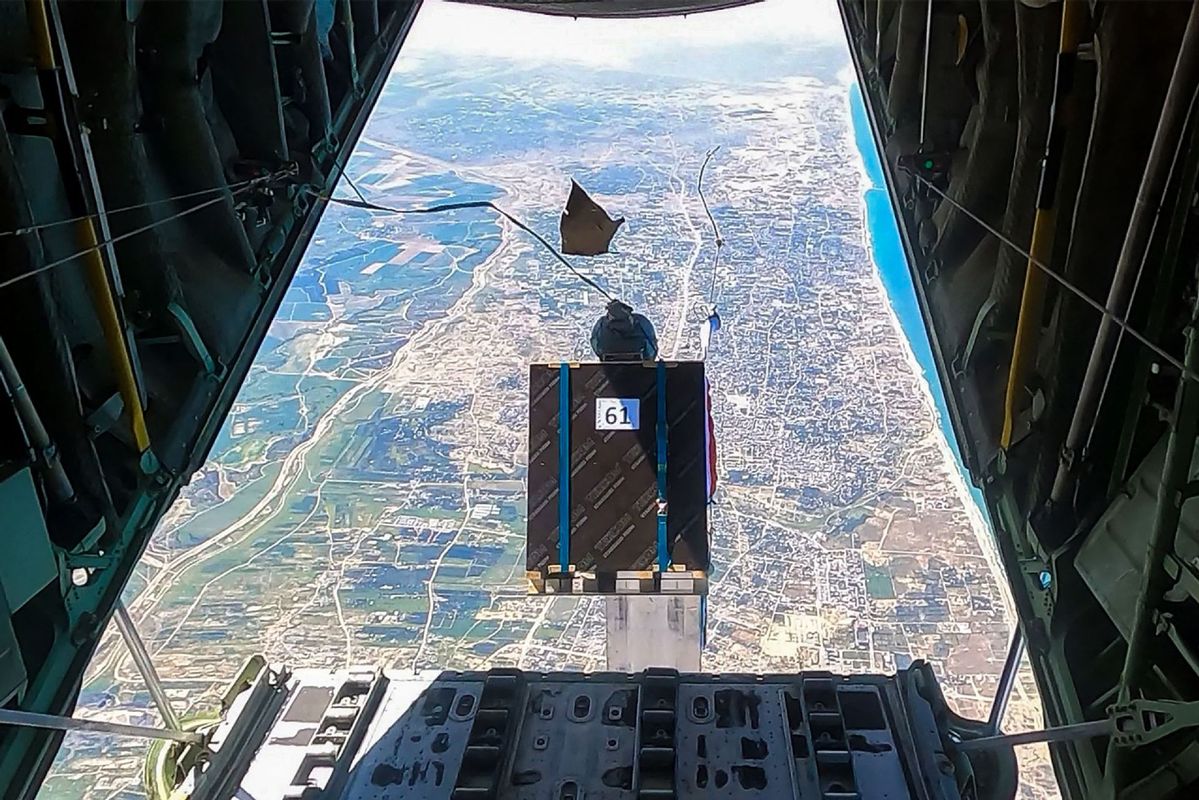Humanity calls for respecting Geneva Conventions


Aug 12 marked the 75th anniversary of the four Geneva Conventions. Ordinarily, this would have been a cause for celebration, but it is difficult to rejoice when there are more than 120 ongoing armed conflicts in the world today, with catastrophic humanitarian consequences. So we must reflect not only on the past 75 years of the conventions but also ask ourselves how we, humankind, envision the next 75 years and how we can preserve the hard-earned gains that were made possible only because of our belief in shared humanity that led to the adoption of the four Geneva Conventions on Aug 12, 1949.
Laws and customs of war predate modern international humanitarian law (IHL). They originated hundreds of years ago from the rich cultural and spiritual practices found in Asia, the Pacific, the Middle East, Africa, the Americas and Europe. The four Geneva Conventions and their additional protocols are the backbone of modern IHL.
International humanitarian law, as a comprehensive body of law that encompasses many international treaties including the four Geneva Conventions and comprises customary law, regulates the means and methods of warfare, and seeks to minimize human suffering during armed conflicts. Each of the four Geneva Conventions protects a special category of people who are not or no longer participating in hostilities. The first Geneva Convention protects wounded and sick soldiers on the battlefield, while the second protects the wounded, sick and shipwrecked of the armed forces at sea. The third convention protects prisoners of war, and the fourth civilians.
The four Geneva Conventions, universally ratified, embody a common language, common values and a global consensus that even in the darkest moments in history, humankind must continue to preserve a degree of humanity. However, humanity today is confronted with a frightening reality of non-compliance with IHL.
Modern armed conflicts have become more dangerous since the dawn of the 20th century. Some of the deadly features of modern warfare include the rapid development of new and lethal weapon technologies, the urbanization of warfare as conflicts shift from open fields to densely populated cities, the frequent use of heavy weapons which have an impact on a wide area, and the deliberate dehumanization of the enemy through labels such as "terrorist".
All these factors, among others, result in armed conflicts that are more lethal, less humane, with devastating humanitarian consequences and alarming risk of IHL violations. This cannot be the status quo.
The shared values of humanity must not be undermined by political polarization. States should not fall in the trap of exceptionalism. There is no elasticity in humanitarian obligations. The destruction of schools, hospitals and essential infrastructure should not be normalized as inevitable part of conflict. The killing of humanitarian workers and other violations of IHL must not become the new normal.
The rules of war are not optional. When the Earth is indiscriminately scorched and IHL violations are committed with impunity, they fuel further cycles of violence often resulting in protracted armed conflicts that span decades. On the other hand, when IHL is respected, parties to the conflict retain a glimmer of hope that could lead them back to peace.
International humanitarian law has the power to change the behavior of the combatants and fighters on the battlefield. The world has no stronger tool at its disposal to use in times of war to protect civilians. As such, states must do all that is necessary to build a culture of respect for IHL, which can be exemplified by three fundamental pillars: ratification of IHL treaties, implementation of IHL in domestic law, and the dissemination of IHL among armed forces and civilians, as well as policymakers. These pillars combined create a culture of respect for IHL that positively influences behavior on the battlefield during an armed conflict.
International humanitarian law includes many international treaties that have saved countless lives. Treaties that prohibit and limit the use of weapons have prevented the indiscriminate killing and maiming of civilians. Treaties such as the Anti-Personnel Mine Ban Convention, the Convention on Cluster Munitions, and the Chemical Weapons Convention have significantly reduced the number of casualties resulting from these weapons.
Weapon treaties are a step toward peace; reducing the number of deadly weapons around the world can make the world a safer place. Weapons that cause superfluous injuries and cause unnecessary suffering are prohibited under IHL. These very weapons often cause scars much deeper than physical injuries, which are carried by generations that can become a barrier to peace, security and stability. Strengthening ratification of IHL treaties is one of the strongest forms of support and commitment for IHL.
In addition, implementation of IHL into domestic law, military manuals, doctrines and decrees is the surest way to prevent IHL violations. Implementation of IHL is too often uneven, but when parties do respect the law, lives are saved.
Equally important is the prosecution of violations of IHL. Parties to the conflict must not endorse a culture of impunity. The efforts and support spent justifying atrocities should instead be dedicated to holding those committing the atrocities responsible. The criminal repression of grave violations of IHL is an obligation on all state parties to the four Geneva Conventions.
The devastating aftermath of World War II triggered a stark universal recognition that wars needed rules to limit their horrific effects on populations. There was a consensus that "never again" should such horrors be repeated. China was among the first countries which recognized the Geneva Conventions — on July 13, 1952. The then premier Zhou Enlai, in his letter to the Swiss Federal Council, highlighted that the People's Republic of China was recognizing these conventions because they are "conducive to a lasting peace among all nations", an important message that must be reiterated and remembered at all times.
In September 2023, during his meeting with Mirjana Spoljaric, president of the International Committee of the Red Cross, China's top leader emphasized that humanitarianism is the greatest consensus that can unite different civilizations. The four Geneva Conventions and the underpinning principle of humanity is the manifestation of this consensus that we all need to remind ourselves of again.
The ICRC is the guardian of IHL, but we cannot enforce IHL on unwilling states. The world is in urgent need of powerful voices advocating for the respect of IHL. In the words of the ICRC president, states must make IHL a political priority. The ICRC reaffirms its readiness to support states on this journey of promoting compliance and respect for IHL, as preserving humanity is a crucial call on all of us.
The author is the personal envoy of the president and head of the East Asia Regional Delegation of the International Committee of the Red Cross, based in Beijing. The views don't necessarily reflect those of China Daily.
If you have a specific expertise, or would like to share your thought about our stories, then send us your writings at opinion@chinadaily.com.cn, and comment@chinadaily.com.cn.
































